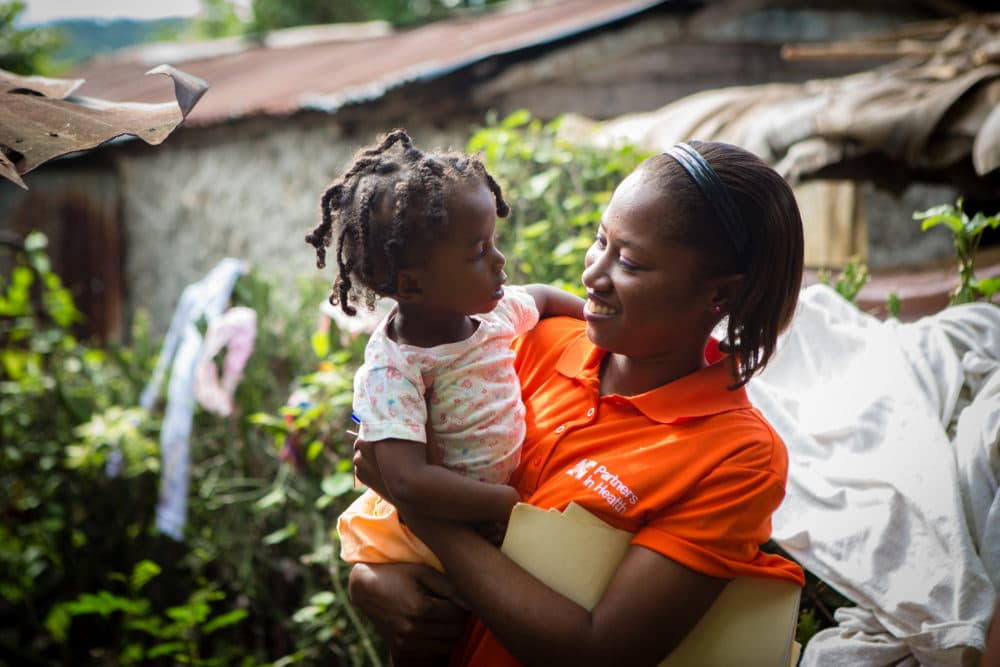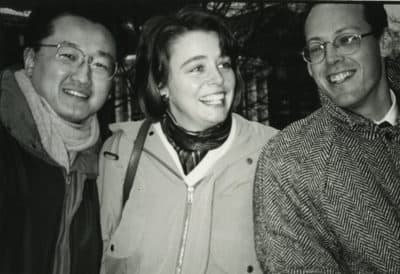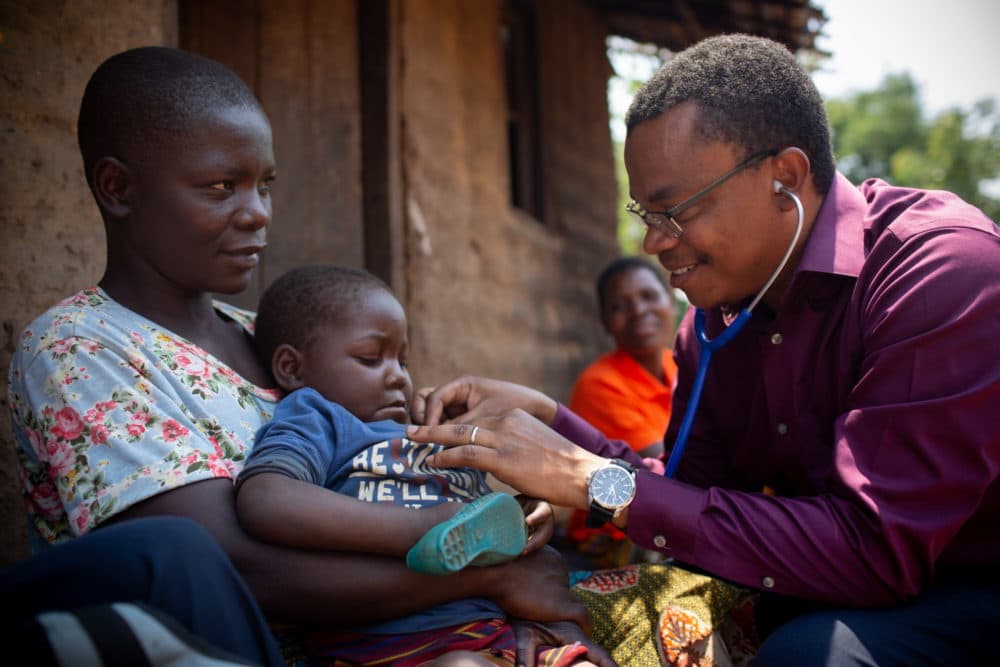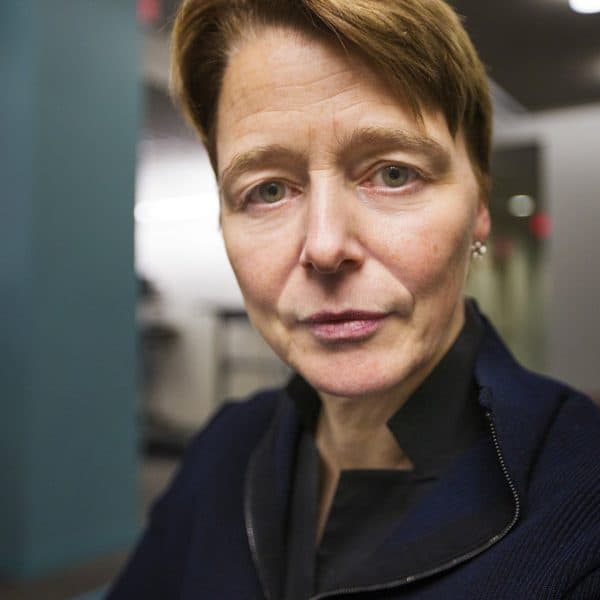Advertisement
Commentary
'Little By Little,' We Work For A Better, More Humane World
Resume
There’s a well-loved Haitian proverb I often turn to during challenging times: “Piti piti, wazo fe nich li.” It translates to, “Little by little, the bird makes its nest.” My friends and colleagues offer it up as words of consolation and hope when a challenge seems overwhelming. I bring it up now, as I often do during difficult times when so much seems uncertain, because it also reminds me of a specific moment from my first trip to Haiti in 1983 as an 18-year-old volunteer.
I was standing on the balcony of an old home set along a hillside in Port-au-Prince, gazing down at an enormous number of dilapidated houses concentrated in a floodplain bordering the sea. The sight drove home the complexity that is life in Haiti, and I suddenly felt physically and emotionally overwhelmed. I had come thinking I could be useful, but how was that possible in the face of such abject poverty?
At the time, I was visiting a new friend, Paul Farmer, who was also in Haiti as a volunteer. We’d been talking for hours about what we had seen in local clinics — Haitian doctors and nurses eager to provide care, but doing so alone, in crumbling facilities, and without labs, proper supplies or medicines. We had the audacious thought that, if we partnered with Haitian colleagues and fundraised, we could do better together. And we decided to start in Cange, a community of displaced peasant farmers living several hours north of the capital.

Standing on that balcony, I asked Paul whether we could truly make a dent in the extreme poverty faced by thousands of Haitians living in the shantytown below. His response was simple: We’re not addressing that piece, he said. We’re going to Cange, where we already know people and have gone door-to-door surveying what the community most wanted — a clinic and a school. In other words, we’d partnered with local experts, and we’d listened. The eternal optimist, he wanted to see what we could do, so we got to work.
A couple of years later in partnership with three close friends, we co-founded a nonprofit, Partners In Health.
You could say we took each problem twig by twig. Our team started with a clinic. We built it knowing that three rooms wouldn’t be enough, but it was what we could afford at the time. When it was finished, rebar jutted up from the roof as a visible sign that we had intentions to expand. That clinic grew into a hospital, which then served as a reference point for other clinics we began serving in nearby communities.
Optimism is the only choice if we are to transcend apathy and work together for a better, more humane world.
It all started with a single step in the right direction, and with the right partners. That step grew into a movement that spread throughout Haiti, to the Central Plateau, then west to the lower Artibonite. It leapt to Peru and Russia. It expanded to Mexico. And it took root in five countries throughout Africa and in the heart of Kazakhstan. At the same time, our colleagues around the world went from treating malaria and pneumonia to tackling HIV, multidrug-resistant tuberculosis, cancer and so much more. All of this combined work led to reinforcing primary care systems in some of the most remote and underserved regions of the world.
Three decades have passed since PIH’s founding, and I’ve often been asked if I feel overwhelmed by the task ahead, or find the work depressing. Global health problems are daunting — 1 in 17 women in Sierra Leone has a lifetime risk of dying in childbirth, 1 in 5 children in Haiti are starving and 1 in 4 adults in Lesotho live with HIV. These are scary numbers, by any measure. But they should not induce paralysis or serve as barriers to taking that first step, to reaching out with two hands to help.

There is progress and, therefore, much hope in this work. It comes through the toddler who greets you with a big, mischievous smile, when she’d sat expressionless on her mother’s lap only two weeks prior, wracked by acute malnutrition. Through the mother who cradles her newborn baby following a lifesaving c-section in a sterile facility, remodeled only months ago. Through the doctor who returns to work because his TB is cured, after finally getting on the right meds following years of ineffective care.
These are victories. They come through individuals. And they not only have an impact on communities, but have amounted to systemic change across countries and have inspired shifts in global policy that have positively affected millions of people. They also remind us that every single person deserves a high quality of care, as we all want for our loved ones. It’s only fair.
There is progress and, therefore, much hope in this work.
And that’s why, following today’s news cycle, it is painful to watch inequities and cynicism grow. To see the terrible failures of imagination and the gap widen. Optimism is the only choice if we are to transcend apathy and work together for a better, more humane world.
It’s been decades now since Paul and I gazed down from that little balcony in Port-au-Prince. I don’t feel overwhelmed anymore. At least, not in the sense I once was. I am overwhelmed by the sheer generosity, dedication, and — ultimately — love I’ve witnessed working alongside my colleagues around the globe.
These, unquestionably, can feel like dark times, but don’t lose heart. I’ve seen how one bright idea sparks many more.
This segment aired on January 22, 2019.
